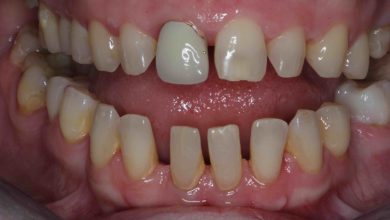How to Prevent Dental Caries? 10 Proven Tips for Optimal Oral Health

Preventing dental caries can be achieved by practicing good oral hygiene and maintaining a healthy diet. Dental caries can be prevented through regular brushing, flossing, and using fluoride toothpaste.
A healthy diet low in sugary and acidic foods can also help prevent the formation of dental caries. In addition, regular dental check-ups and cleanings are essential in identifying and treating any signs of dental caries early on. By following these preventive measures, one can significantly reduce the risk of developing dental caries and maintain optimal oral health.
Understanding Dental Caries And Its Impact On Oral Health
Dental caries, commonly known as tooth decay or cavities, is one of the most prevalent oral health issues affecting people of all ages. It is a progressive disease that results in the destruction of tooth enamel, leading to pain, tooth loss, and other complications. Caries develop when plaque, a sticky film of bacteria, builds up on the surface of teeth and produces acids that attack the enamel.
Various factors contribute to the development of dental caries. Poor oral hygiene practices, such as inadequate brushing or flossing, increase the risk of plaque buildup. Consuming sugary and acidic foods and beverages, frequent snacking, and drinking sugary drinks also play a significant role. Factors like dry mouth, decreased saliva production, and certain medications can make individuals more susceptible to caries.
Prevention is crucial for maintaining optimal oral health and preventing dental caries. Regular brushing with fluoride toothpaste, flossing, and visiting the dentist for professional cleanings are essential. A balanced diet that limits sugary and acidic foods can minimize the risk of caries. Additionally, applying dental sealants and using fluoride treatments can provide further protection.
Maintaining A Proper Oral Hygiene Routine
Maintaining a proper oral hygiene routine is crucial for preventing dental caries. By brushing your teeth twice a day, flossing daily, and using mouthwash, you can keep your teeth and gums healthy and decrease the risk of cavities. Regular dental check-ups and a balanced diet can also contribute to good oral health.
Proper oral hygiene is crucial in preventing dental caries. Brushing techniques play a significant role in effective plaque removal. Firstly, choosing the right toothbrush and toothpaste is essential. Opt for a toothbrush with soft bristles and a small head, as it can reach all areas of your mouth. When brushing, hold your toothbrush at a 45-degree angle against the gumline and use gentle, circular motions. Remember to brush all surfaces of your teeth, including the back and tongue.
In terms of frequency and duration, it is recommended to brush your teeth twice daily, for two minutes each time. This helps ensure thorough cleaning and removes any plaque buildup. However, brushing alone might not be sufficient. Incorporating flossing and interdental cleaning is equally important. Floss daily to remove food particles and plaque between teeth, reaching areas that a toothbrush cannot.
Additionally, consider using mouthwash and dental rinses. These products can help reduce plaque, freshen breath, and prevent dental caries. Incorporate these oral hygiene practices into your daily routine to maintain optimal dental health.
| Toothbrushing Techniques | Flossing and Interdental Cleaning | Mouthwash and Dental Rinses |
|---|---|---|
|
|
|
Making Smart Dietary Choices For Strong Teeth
When it comes to preventing dental caries, making smart dietary choices is crucial for maintaining strong teeth. One of the main culprits behind tooth decay is the consumption of excessive sugar. Sugar consumption can lead to the production of acids in the mouth, which in turn erode the tooth enamel and cause cavities.
To prevent dental caries, it is important to limit or avoid foods and beverages that are high in sugar, such as sugary snacks, candies, soft drinks, and fruit juices. These can contribute to the plaque formation and increase the risk of tooth decay. Instead, it is beneficial to include foods that promote oral health, such as fruits and vegetables, dairy products, lean proteins, and whole grains. These foods provide essential nutrients like calcium, vitamins, and minerals that contribute to strong teeth and gums.
Hydration also plays a significant role in preventing dental caries. Choosing water as the main beverage throughout the day helps to keep the mouth hydrated, flush away food particles, and neutralize acid levels, reducing the risk of tooth decay.
Understanding The Role Of Fluoride In Preventing Dental Caries
Dental caries, commonly known as tooth decay, is a prevalent oral health issue that can lead to various dental problems. One effective way to prevent dental caries is by understanding the role of fluoride in maintaining oral health. Fluoride is a natural mineral that helps protect teeth against acid attacks from bacteria in the mouth. It works by strengthening the enamel, the protective outer layer of the teeth, and making it more resistant to decay. The benefits of fluoride in preventing tooth decay include reducing the risk of cavities and minimizing tooth sensitivity.
| Sources of Fluoride |
|---|
|
– Tap water: Many public water systems are fluoridated, providing a convenient source of fluoride for daily use. – Toothpaste and mouthwash: Using fluoride toothpaste and mouthwash with the ADA Seal of Acceptance can effectively deliver fluoride to the teeth. – Professional treatments: Dentists can provide fluoride treatments, such as gels, varnishes, or foams, to provide an extra level of protection against dental caries. |
Regular Dental Check-ups And Professional Cleanings
In order to prevent dental caries, it is crucial to maintain regular dental check-ups and professional cleanings. Regular dental visits play a key role in maintaining optimal oral health. By visiting your dentist on a regular basis, often recommended every six months, you can ensure that any potential dental issues, including the development of dental caries, are detected early on. These visits allow your dentist to thoroughly examine your teeth and gums, identify any signs of decay, and provide the necessary treatments to prevent further complications.
Professional dental cleanings are an essential part of these regular visits. They offer numerous benefits, including the removal of plaque and tartar buildup, which can contribute to the development of dental caries. Additionally, these cleanings help to eliminate surface stains and improve the overall appearance of your teeth. By maintaining a consistent schedule of dental check-ups and cleanings, you can not only prevent dental caries but also address any issues promptly, minimizing potential damage to your oral health.
Overall, regular dental check-ups and professional cleanings play a vital role in the prevention and early detection of dental caries. By prioritizing these visits, you can ensure that your oral health remains in optimal condition, reducing the risk of developing cavities and other dental problems.
Sealants And Other Protective Measures
Dental sealants are thin plastic coatings that are applied to the chewing surfaces of teeth to prevent tooth decay. They are typically applied to the back teeth, as these are more susceptible to cavities. The sealants act as a barrier, protecting the tooth enamel from bacteria and food particles that can lead to decay. The application process is quick and painless, with the sealant being painted onto the tooth and hardened using a special light.
In addition to sealants, there are other protective measures that can help prevent dental caries. One such measure is dental varnishes, which are applied to the teeth and provide a protective coating. These varnishes release fluoride, which helps to strengthen the teeth and prevent decay. Another option is nitrate wash, which is a rinse that is used to reduce the amount of harmful bacteria in the mouth. Nitrate washes have been shown to be effective in preventing caries.
Understanding The Impact Of Habits And Lifestyle On Oral Health
Understanding the Impact of Habits and Lifestyle on Oral Health
Smoking and tobacco use have a detrimental effect on dental caries. Tobacco products contain harmful chemicals that weaken the tooth enamel, making them more susceptible to cavities. In addition, smoking reduces saliva flow, which is crucial for neutralizing acids and preventing tooth decay. Similarly, excessive alcohol consumption can lead to the development of cavities. Alcohol dries out the mouth, reducing saliva production and leaving the teeth vulnerable to decay.
To prevent dental caries, it is essential to quit smoking and reduce alcohol intake. Quitting smoking can be challenging, but it is crucial for oral health. Professional help, support groups, and nicotine replacement therapy can aid in this process. Reducing alcohol consumption to moderate levels is also beneficial. Maintaining a healthy diet, practicing good oral hygiene habits, such as brushing twice a day and flossing regularly, and visiting the dentist for check-ups and cleanings are fundamental for maintaining optimal oral health.
Importance Of Proper Dental Care During Pregnancy And Childhood
Importance of Proper Dental Care During Pregnancy and Childhood
The impact of pregnancy on oral health can be significant. Hormonal changes during pregnancy can increase the risk of dental problems, including gum disease and dental caries. It is essential for pregnant women to prioritize their dental care to prevent any complications.
- Continue with regular dental check-ups and cleanings.
- Inform your dentist that you are pregnant.
- Brush your teeth at least twice a day with fluoride toothpaste.
- Floss regularly to remove plaque and food particles.
- Eat a balanced diet, limiting sugary foods and beverages.
Early dental visits are crucial for setting a foundation of good oral health. Starting from the eruption of the first tooth, it is recommended to schedule a dental visit by the age of one. Regular dental check-ups help in early detection and prevention of dental issues, ensuring the proper development of teeth and gums.
- Supervise and assist children with toothbrushing until they can do it effectively on their own.
- Encourage a balanced diet and limit sugary snacks and drinks.
- Teach the importance of brushing twice a day and flossing once a day.
- Make dental visits a positive experience to reinforce the significance of oral health.
Educating And Encouraging Others To Prevent Dental Caries
Oral health education plays a crucial role in preventing dental caries in communities. By providing information and creating awareness about the importance of oral hygiene, we can empower individuals to take proactive steps towards maintaining good dental health.
One effective way to promote dental health is through schools and workplaces. Incorporating oral health education programs and initiatives in curriculum and workplace policies can help individuals develop good oral health habits from an early age. From regular oral health check-ups to emphasizing the importance of brushing and flossing, these educational efforts can make a significant impact.
Encouraging family and friends to prioritize oral health is another essential step. By highlighting the benefits of regular dental care and the potential consequences of neglecting oral hygiene, we can motivate our loved ones to take preventive measures. Sharing personal experiences and success stories can also inspire others to prioritize their dental health.
In addition, spreading awareness about the benefits of prevention is crucial. Social media campaigns, community events, and workshops can be organized to educate the public on the significance of oral health and the steps they can take to prevent dental caries. By focusing on prevention rather than treatment, we can create a healthier and more informed society.
Incorporating Preventive Measures For A Cavity-free Future
Learn how to prevent dental caries and achieve a cavity-free future by incorporating effective preventive measures. Adopt a consistent oral hygiene routine, limit sugary foods and drinks, visit your dentist regularly, and consider additional preventive treatments such as fluoride applications or dental sealants.
Ensuring Long-term Success In Preventing Dental Caries
Cavity prevention is key for maintaining optimal oral health. By setting realistic goals tailored to your specific needs, you can establish a solid foundation for your oral care routine. Creating a personalized preventive oral care plan is crucial to address individual risk factors and prevent dental caries. This approach ensures that you are taking the right steps to keep your teeth in good shape.
Adopting preventive measures offers numerous benefits for a cavity-free future. Regular brushing and flossing, a balanced diet, limiting sugary snacks and drinks, and attending regular dental check-ups are all part of an effective preventive strategy. These actions help remove plaque, strengthen enamel, and reduce the risk of developing cavities. By prioritizing preventive measures, you can maintain a healthy smile and avoid potential dental issues.
| Tips to Prevent Dental Caries |
|---|
| Brush your teeth twice a day for two minutes using fluoride toothpaste. |
| Floss daily to remove plaque and food particles from between your teeth. |
| Eat a balanced diet that is low in sugary snacks and drinks. |
| Limit snacking and choose healthier alternatives like fruits or vegetables. |
| Stay hydrated by drinking plenty of water throughout the day. |
| Avoid tobacco use as it increases the risk of dental caries. |
| Visit your dentist regularly for check-ups and professional cleanings. |

Credit: www.colgateprofessional.co.th
Frequently Asked Questions Of How To Prevent Dental Caries?
How Can I Prevent Caries Naturally?
To naturally prevent caries, follow these habits: 1. Brush your teeth twice a day using fluoride toothpaste. 2. Limit sugary and acidic foods and drinks. 3. Floss daily to remove plaque and food particles. 4. Rinse your mouth with water after meals and snacks.
5. Visit your dentist regularly for check-ups and professional cleanings.
Can Dental Caries Be Prevented?
Yes, dental caries can be prevented through proper oral hygiene practices, such as regular brushing and flossing, limiting sugary snacks and drinks, and regular dental check-ups.
What Are The Causes Of Dental Caries?
Dental caries is primarily caused by a combination of bacteria in the mouth, frequent consumption of sugary foods and drinks, poor oral hygiene, and a lack of fluoride in the diet or dental care products.
How Often Should I Visit The Dentist To Prevent Dental Caries?
Regular dental check-ups are crucial in preventing dental caries. It is recommended to visit the dentist at least twice a year for professional cleaning, examination, and early detection of any potential dental issues.
Conclusion
Adopting a preventive approach is key to combating dental caries and maintaining good oral health. By following a regular oral hygiene routine, including brushing twice a day with fluoride toothpaste, flossing daily, and visiting your dentist for regular check-ups, you can significantly reduce the risk of developing cavities.
Additionally, practicing good dietary habits, such as limiting sugar consumption and opting for teeth-friendly foods, can further contribute to preventive care. Remember, prevention is always better than cure when it comes to dental caries!




